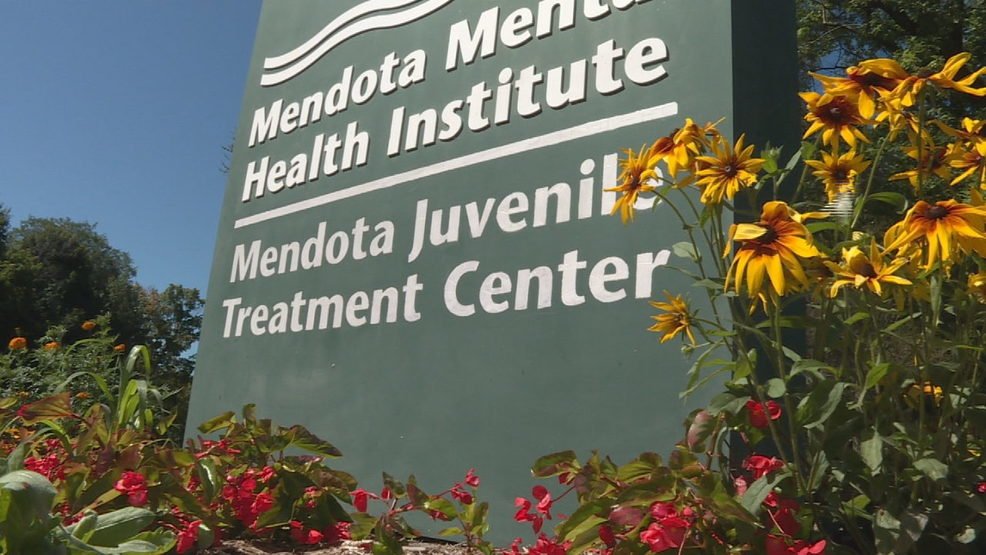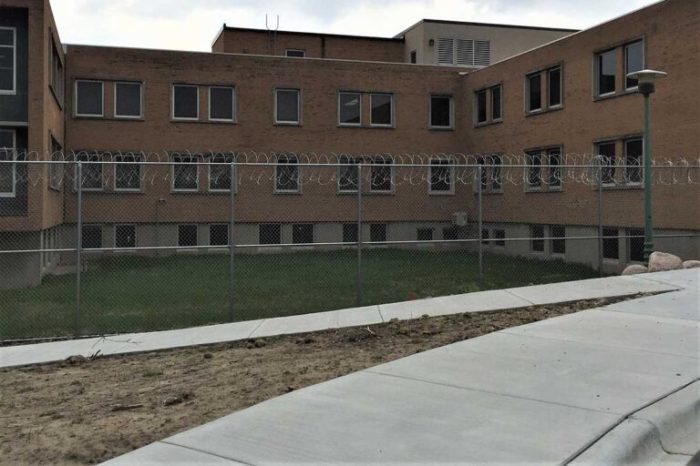Mendota Mental Health Institute, a prominent institution in the history of mental health care, has a rich and multifaceted past. Founded with a mission to provide compassionate care to those in need, the institute has evolved over the years, adapting to changing societal views and advancements in medical knowledge.
From its early days as a haven for individuals struggling with mental illness to its present-day role as a comprehensive treatment center, Mendota has played a pivotal role in shaping the mental health landscape.
The institute offers a wide array of services, including inpatient and outpatient care, tailored programs for specific conditions, and a dedicated team of professionals committed to providing holistic treatment. Mendota’s legacy is built upon a foundation of innovation, compassion, and a unwavering dedication to improving the lives of those it serves.
History of Mendota Mental Health Institute

The Mendota Mental Health Institute (MMHI) is a state-run psychiatric hospital located in Madison, Wisconsin. It has a long and rich history, evolving from a small asylum to a modern mental health facility.
Founding and Early Years
MMHI was founded in 1860 as the Wisconsin State Hospital for the Insane. The original purpose of the institute was to provide care and treatment for individuals with mental illness, who were often ostracized and misunderstood at the time. The institute was built on a large tract of land in the town of Mendota, just outside of Madison.
Its initial mission was to provide a safe and humane environment for patients, while also attempting to cure their illnesses through a combination of therapies, including rest, exercise, and moral treatment.
Services and Programs

Mendota Mental Health Institute offers a comprehensive range of services designed to address the diverse needs of individuals with mental health conditions. These services encompass both inpatient and outpatient care, tailored to meet the specific requirements of each patient.
Inpatient Services
Inpatient services at Mendota provide a structured and supportive environment for individuals experiencing acute mental health crises or requiring intensive treatment. The institute offers a variety of inpatient units, each specializing in a specific population or condition. These units provide a safe and therapeutic setting for patients to receive individualized care, including medication management, therapy, and skills training.
Outpatient Services
Mendota also provides a range of outpatient services, offering ongoing support and treatment to individuals who do not require inpatient care. Outpatient services include individual and group therapy, medication management, case management, and crisis intervention. These services are designed to help individuals manage their mental health conditions, develop coping skills, and improve their overall well-being.
Specific Programs
Mendota offers specialized programs designed to address the unique needs of individuals with various mental health conditions. These programs include:
- Adult Psychiatric Services:Provides comprehensive mental health care for adults experiencing a range of mental health conditions, including depression, anxiety, bipolar disorder, and schizophrenia. This program offers individual therapy, group therapy, medication management, and case management.
- Child and Adolescent Psychiatric Services:Offers specialized care for children and adolescents experiencing mental health challenges, including anxiety, depression, attention-deficit/hyperactivity disorder (ADHD), and autism spectrum disorder. This program provides individual therapy, family therapy, medication management, and school-based interventions.
- Forensic Psychiatric Services:Provides treatment and evaluation for individuals who have been found not guilty by reason of insanity (NGRI) or guilty but mentally ill (GBMI) in criminal proceedings. This program offers intensive therapy, medication management, and rehabilitation services to help individuals reintegrate into the community.
- Substance Use Disorder Treatment:Provides comprehensive treatment for individuals struggling with substance use disorders, including alcohol and drug addiction. This program offers individual therapy, group therapy, medication-assisted treatment, and relapse prevention strategies.
- Trauma-Informed Care:Provides specialized care for individuals who have experienced trauma, including abuse, neglect, or violence. This program offers individual therapy, group therapy, and trauma-focused cognitive-behavioral therapy (TF-CBT) to help individuals heal from past trauma and build resilience.
Summary of Services and Programs
| Service Name | Description | Target Population | Contact Information |
|---|---|---|---|
| Inpatient Services | Structured and supportive environment for individuals experiencing acute mental health crises or requiring intensive treatment. | Adults and adolescents with various mental health conditions. | (608) 241-3000 |
| Outpatient Services | Ongoing support and treatment for individuals who do not require inpatient care. | Adults and adolescents with various mental health conditions. | (608) 241-3000 |
| Adult Psychiatric Services | Comprehensive mental health care for adults experiencing a range of mental health conditions. | Adults with various mental health conditions. | (608) 241-3000 |
| Child and Adolescent Psychiatric Services | Specialized care for children and adolescents experiencing mental health challenges. | Children and adolescents with various mental health conditions. | (608) 241-3000 |
| Forensic Psychiatric Services | Treatment and evaluation for individuals who have been found not guilty by reason of insanity (NGRI) or guilty but mentally ill (GBMI) in criminal proceedings. | Individuals with mental illness who have been involved in the criminal justice system. | (608) 241-3000 |
| Substance Use Disorder Treatment | Comprehensive treatment for individuals struggling with substance use disorders. | Individuals with alcohol or drug addiction. | (608) 241-3000 |
| Trauma-Informed Care | Specialized care for individuals who have experienced trauma. | Individuals who have experienced abuse, neglect, or violence. | (608) 241-3000 |
Notable Staff and Patients

Mendota Mental Health Institute has a rich history, and its impact extends beyond its walls. Many individuals have left their mark on the institute, both as dedicated staff and as patients who found healing and support within its walls. These individuals have shaped the institute’s legacy and contributed to its ongoing mission of providing compassionate and effective mental health care.
Prominent Individuals
Mendota Mental Health Institute has been home to notable individuals who have made significant contributions to the field of mental health. These individuals have played crucial roles in advancing research, advocating for patient rights, and shaping the institute’s approach to care.
- Dr. William A. Bryan, a pioneering psychiatrist, served as the institute’s superintendent from 1920 to 1947. He was instrumental in developing the institute’s focus on individual treatment and rehabilitation. Dr. Bryan also established a research program that focused on the causes and treatment of mental illness.
- Dr. George H. Jacoby, a prominent neurologist and psychiatrist, was a founding member of the American Psychiatric Association. He was a strong advocate for the humane treatment of patients with mental illness and believed that mental illness was a disease that could be treated effectively.
The Mendota Mental Health Institute has a long and storied history, offering care to those in need for over a century. While the facility focuses on mental health, it’s important to remember that self-care can encompass a wide range of practices, including beauty routines.
For those who love a flawless manicure, beauty secrets drip & clog proof nail glue can be a helpful tool. Ultimately, whether it’s through therapy or a perfectly polished nail, finding ways to feel good about oneself is essential for overall well-being, something the Mendota Mental Health Institute understands deeply.
Dr. Jacoby served as a consultant to the institute during its early years and played a role in shaping its philosophy of care.
Patient Stories
The stories of patients who have been treated at Mendota Mental Health Institute are a testament to the institute’s impact on lives. These stories illustrate the challenges faced by individuals with mental illness and the hope and resilience that can be found through treatment and support.
“Mendota gave me the tools I needed to manage my mental illness. I was able to learn coping mechanisms, build relationships, and develop a sense of self-worth. The staff was always supportive and understanding, and I felt like I was truly cared for.”
Former Patient
Challenges and Controversies

Mendota Mental Health Institute, like many similar institutions, has faced numerous challenges throughout its history, both internal and external. These challenges have often stemmed from societal attitudes towards mental illness, evolving treatment methods, and financial constraints.
Mendota Mental Health Institute, a historic institution with a long and complex history, has served as a beacon of hope for those struggling with mental health challenges. While navigating the complexities of mental health can be challenging, taking care of oneself is equally important.
Finding a moment of relaxation and self-care can be incredibly beneficial, and a visit to a best beauty salon near me can be a wonderful way to do just that. Just as Mendota Mental Health Institute provides support and guidance, a beauty salon can offer a space for rejuvenation and a boost in self-esteem.
Historical Challenges and Controversies, Mendota mental health institute
- Overcrowding and Inadequate Resources:During its early years, Mendota, like many mental hospitals, struggled with overcrowding and limited resources. This led to poor living conditions and inadequate care for patients.
- Use of Restraint and Electroconvulsive Therapy (ECT):The use of physical restraint and ECT, while once considered standard practices, have been criticized for their potential to cause harm and for lacking patient consent. Mendota has worked to reduce the use of these practices over time.
- Deinstitutionalization Movement:The deinstitutionalization movement of the 1960s and 1970s aimed to move patients from large institutions to community-based settings. This shift led to a significant decrease in the number of patients at Mendota, but also raised concerns about the adequacy of community support systems.
Mendota Mental Health Institute, with its rich history, has played a significant role in addressing mental health challenges. Maintaining a healthy lifestyle is crucial for overall well-being, and finding a gym like vasa fitness near me can be a great way to achieve this.
Regular exercise can be a powerful tool for managing stress and improving mood, which are key aspects of mental health. Mendota Mental Health Institute continues to provide essential services to support individuals in their journey towards mental well-being.
Contemporary Challenges and Controversies
- Funding and Staffing Shortages:Like many mental health institutions, Mendota faces ongoing challenges related to funding and staffing shortages. This can impact the quality and availability of care, particularly in areas such as individual therapy and group programs.
- Ethical Considerations in Treatment:Ethical considerations are paramount in mental health care. Mendota has a responsibility to ensure that all treatment decisions are made with the patient’s best interests in mind and with informed consent. This includes careful consideration of the potential benefits and risks of various treatment options.
- Public Perception and Stigma:Despite progress in reducing stigma, mental illness continues to face misconceptions and negative stereotypes. This can create barriers to accessing care and lead to discrimination against individuals with mental health conditions.
Historical Practices vs. Current Practices
| Historical Practices | Current Practices |
|---|---|
| Emphasis on custodial care, with limited focus on individual treatment. | Emphasis on individualized treatment plans, including therapy, medication, and community support. |
| Use of physical restraint and ECT as common practices. | Reduced use of restraint and ECT, with a focus on less restrictive interventions and patient consent. |
| Large, institutional setting with limited community integration. | Focus on community integration and support, with a shift towards outpatient services and community-based programs. |
Future Directions

Mendota Mental Health Institute, with its rich history and commitment to providing care, stands at a pivotal point, poised to embrace the future of mental health care. The institute is actively exploring innovative approaches to enhance services, expand treatment options, and contribute meaningfully to the evolving mental health landscape.
Emerging Technologies and Trends in Mental Health Care
Technological advancements are transforming the field of mental health care, offering new avenues for diagnosis, treatment, and support. Mendota Mental Health Institute is strategically incorporating these innovations to improve patient care and outcomes.
- Telehealth:Telehealth platforms allow for remote access to mental health services, bridging geographical barriers and increasing accessibility for patients in underserved areas. Mendota Mental Health Institute is expanding its telehealth capabilities to reach a wider range of individuals, including those in rural communities.
- Artificial Intelligence (AI):AI-powered tools are emerging as valuable resources in mental health care. AI algorithms can analyze large datasets to identify patterns and predict potential risks, enabling early intervention and personalized treatment plans. Mendota Mental Health Institute is exploring the use of AI to enhance patient monitoring, risk assessment, and treatment recommendations.
- Virtual Reality (VR):VR technology offers immersive experiences that can be used for therapeutic purposes. VR simulations can create controlled environments to address specific mental health challenges, such as anxiety or phobias. Mendota Mental Health Institute is investigating the potential of VR to enhance therapeutic interventions and provide alternative treatment modalities.
Closure: Mendota Mental Health Institute
Mendota Mental Health Institute stands as a testament to the ongoing evolution of mental health care. As society continues to grapple with the complexities of mental illness, the institute remains committed to providing evidence-based treatment, fostering a supportive environment, and advocating for the well-being of its patients.
Through its unwavering dedication to innovation and compassionate care, Mendota continues to shape the future of mental health, offering hope and healing to those who need it most.
FAQ Explained
What is the history of Mendota Mental Health Institute?
Mendota Mental Health Institute was established in 1860 as the Wisconsin State Hospital for the Insane. Over the years, it has evolved from a large, isolated institution to a more modern, community-based treatment center.
What types of services are offered at Mendota Mental Health Institute?
Mendota offers a wide range of services, including inpatient and outpatient care, crisis intervention, medication management, therapy, and support groups.
What are some notable individuals associated with Mendota Mental Health Institute?
Mendota has been home to many notable individuals, including renowned psychiatrists, groundbreaking researchers, and patients who have made significant contributions to the field of mental health.
How can I get more information about Mendota Mental Health Institute?
You can visit the institute’s website, contact them directly, or reach out to your local mental health resources.